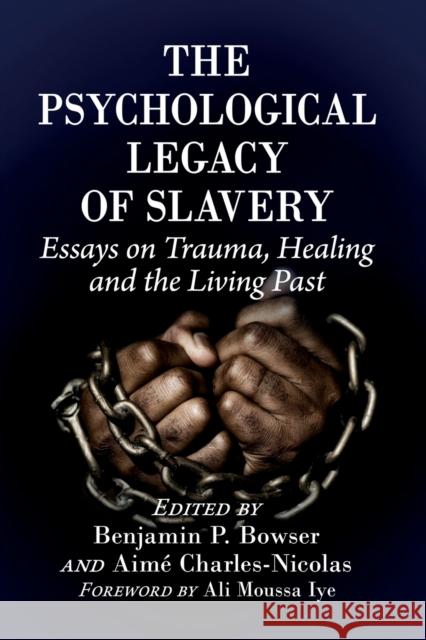The Psychological Legacy of Slavery: Essays on Trauma, Healing and the Living Past » książka
topmenu
The Psychological Legacy of Slavery: Essays on Trauma, Healing and the Living Past
ISBN-13: 9781476678931 / Angielski / Miękka / 2021 / 307 str.
The Psychological Legacy of Slavery: Essays on Trauma, Healing and the Living Past
ISBN-13: 9781476678931 / Angielski / Miękka / 2021 / 307 str.
cena 245,10
(netto: 233,43 VAT: 5%)
Najniższa cena z 30 dni: 246,42
(netto: 233,43 VAT: 5%)
Najniższa cena z 30 dni: 246,42
Termin realizacji zamówienia:
ok. 16-18 dni roboczych
Bez gwarancji dostawy przed świętami
ok. 16-18 dni roboczych
Bez gwarancji dostawy przed świętami
Darmowa dostawa!
Kategorie:
Kategorie BISAC:
Wydawca:
McFarland & Company
Język:
Angielski
ISBN-13:
9781476678931
Rok wydania:
2021
Ilość stron:
307
Waga:
0.41 kg
Wymiary:
22.35 x 14.99 x 2.29
Oprawa:
Miękka
Wolumenów:
01
Dodatkowe informacje:
Bibliografia











